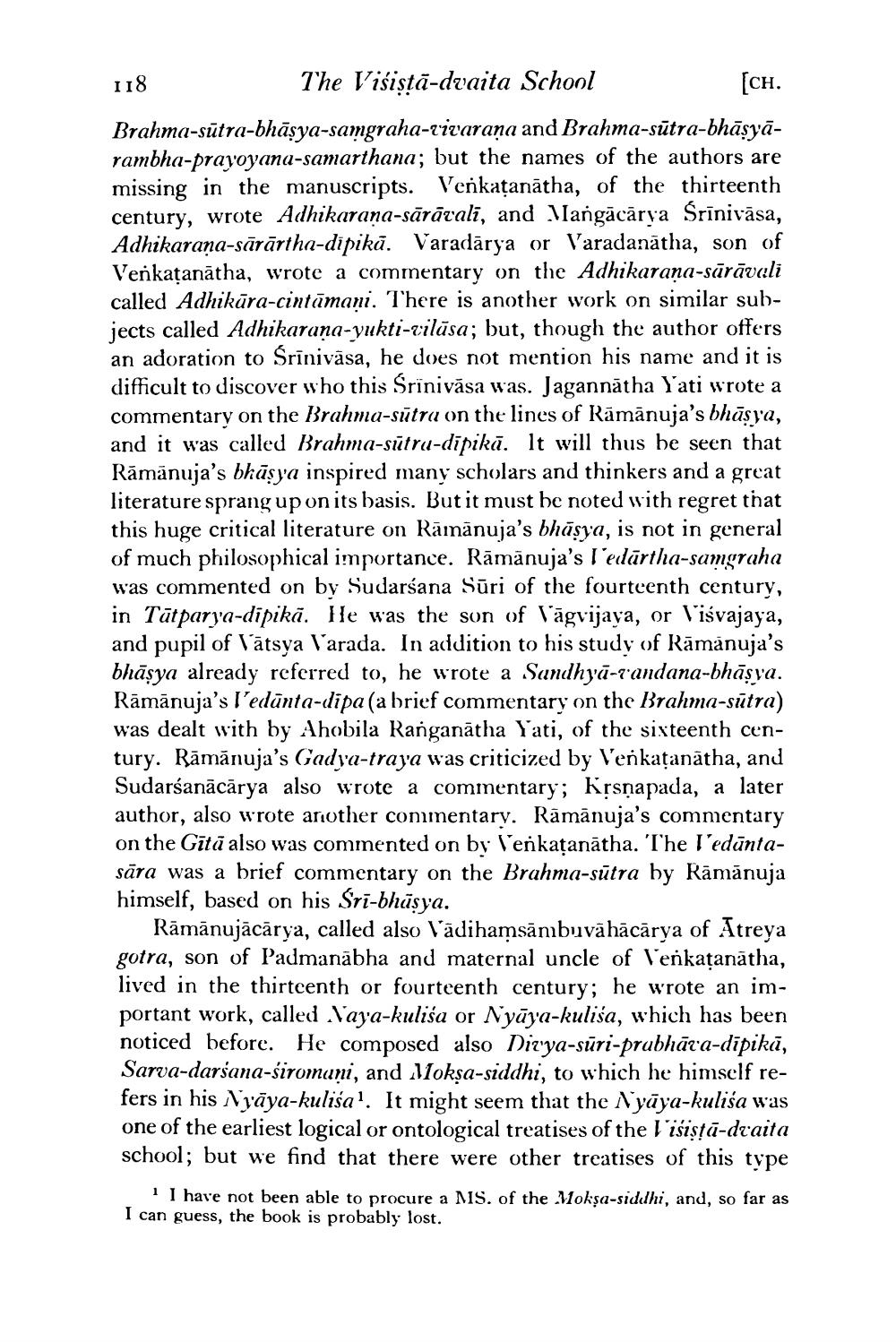________________
118 The l'iśistā-dvaita School
[CH. Brahma-sūtra-bhāşya-samgraha-vivarana and Brahma-sūtra-bhāsvārambha-prayoyana-samarthana; but the names of the authors are missing in the manuscripts. Venkațanātha, of the thirteenth century, wrote Adhikarana-sārārali, and Vangācārya Śrīnivāsa, Adhikarana-sārārtha-dipikā. Varadārya or Varadanātha, son of Verkațanātha, wrote a commentary on the Adhikarana-sūrāvali called Adhikūra-cintīmani. There is another work on similar subjects called Adhikarana-yukti-vilāsa; but, though the author offers an adoration to Srinivāsa, he does not mention his name and it is difficult to discover who this Srinivăsa was. Jagannātha Yati wrote a commentary on the Brahma-sutra on the lines of Rāmānuja's bhāsya, and it was called Brahma-sūtru-dipikā. It will thus be seen that Rāmānuja's bkāşya inspired many scholars and thinkers and a great literature sprang upon its basis. But it must be noted with regret that this huge critical literature on Rāmānuja's bhāşya, is not in general of much philosophical importance. Rāmānuja's l'edārtha-samgraha was commented on by Sudarsana Sūri of the fourteenth century, in Tātparya-dipikā. He was the son of Vāgvijaya, or Visvajaya, and pupil of Vātsya Varada. In addition to his study of Rāmánuja's bhāsya already referred to, he wrote a Sandhyā-r'andana-bhāsya. Rāmānuja's l'edānta-dipa (a brief commentary on the Brahma-sūtra) was dealt with by Ahobila Ranganātha Yati, of the sixteenth century. Rāmānuja's Gadya-traya was criticized by Venkațanātha, and Sudarsanācārya also wrote a commentary; Krsnapada, a later author, also wrote another commentary. Rāmānuja's commentary on the Gītā also was commented on by Venkatanātha. 'The l'edāntasāra was a brief commentary on the Brahma-sūtra by Rāmānuja himself, based on his Sri-bhūsya.
Rāmānujācārya, called also lādihamsānbuvāhācārya of Atreya gotra, son of Padmanābha and maternal uncle of Venkațanātha, lived in the thirteenth or fourteenth century; he wrote an important work, called Vaya-kulisa or Nyāya-kuliša, which has been noticed before. He composed also Dirya-sūri-prabhāra-dipika, Sarva-darsana-siromani, and Ilokșa-siddhi, to which he himself refers in his Nyāya-kulisal. It might seem that the Nyāya-kulisa was one of the earliest logical or ontological treatises of the l'isistū-draita school; but we find that there were other treatises of this type
I have not been able to procure a MIS. of the Mokşa-siddhi, and, so far as I can guess, the book is probably lost.




